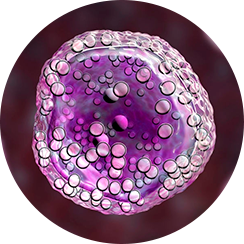Since the 1950s, numerous discoveries have been made that have led to a deeper understanding of the aging process. Since then, constant scientific and medical advances have driven both the growth and application of research.
The concept of antiaging medicine in the 1990s was based primarily on advances in cosmetic treatments, an external beautification, which had value in and of itself, but external improvement could not hide the harsh reality: we age at the rate of 60 minutes per hour.
That first approach to antiaging tarnished the concept itself, so much so that for years we have been developing advances in preventive medicine, it has been met with much skepticism. This is why the disciplines that have continued to work in this field have changed their name to subspecialties such as:
Science that studies aging (different from geriatrics) at a more basic level of research (cells and laboratory animals). Some well-known biomedical gerontologists are Dr. Aubrey de Grey, Dr. Leonard Hayflick, or in Spain, Dr. María Blasco (in one of her multiple fields of research).
It applies the discoveries made today to real clinical practice and seeks to highlight the concept of "piloting or directing aging to keep us at our maximum potential". Although Spain is a pioneer with the Neolife clinics, there are several American and European institutes and medical associations such as the AMMG or the A4M, and several clinics and doctors who have been providing and perfecting this type of assistance for years.
An experimental concept that directly seeks to turn back the clock of our tissues and which, despite the fact that it’s making headlines and will be a revolution in a few years- does not yet have a powerful practical application. Companies such as Calico, the Exponential Medicine Chair at Singularity University (in which Google, Deloitte, and NASA have a stake) and the SENS Foundation, among many others, are involved.
In the last 20 years, great advances have been made in the area of aging and a multitude of interventions have already been described that have shown how to improve quality of life and increase longevity or healthy life expectancy in laboratory animals and, in a very early stage, also in humans.
Perhaps all these advances seem very distant, and we might think that, with luck, only our grandchildren may benefit from their results, but the truth is that there is an increasing growth in scientific institutions and companies that are dedicating their efforts to facing what will be the health challenge of our time: how to achieve greater health and autonomy in the last third of our lives, if possible even longer.
While life expectancy in Spain currently stands at 83 years, healthy life expectancy only extends to 66 years. In other words, if we do not reverse this situation, we will live an average of 16 years with a poor quality of life.
We have already managed to cross the barrier from the scientific field to clinical practice, and it is in our hands to act in certain fields to prevent and improve quality of life. Neolife is the first clinic in Spain to apply the protocols of Age Management Medicine, the new preventive, proactive, predictive, and personalized medicine (4Ps Medicine).
There are many interventions that have already shown a beneficial effect on all these aging mechanisms. At Neolife, we work with a global approach which, after an individualized assessment, allows us to combine all the actions that are currently in our hands.
Eating reeducation, calorie restriction, weight loss, exercise, improvement of inflammatory and oxidative metabolism, metabolic and hormonal balance towards optimal levels, advanced supplementation, detoxification, primary and secondary prevention… all play, naturally, an important role in slowing down our deterioration in the short, medium and long term, and achieving an optimized condition.
The best course of action is to start a Preventive Medicine program now in order to be able to deal with what awaits us in the future…
The present may be promising, but the future is even more so, because new drugs, gene therapy, stem cells, and nanotechnology are all on the horizon.

THE PRESENT…
Today’s antiaging medicine will help you prevent age-related diseases and be in the best possible condition for when science has advanced sufficiently and we may benefit from therapies that not only delay aging, but even reverse it completely.

THE NEAR FUTURE…
In the next two decades, advances in medicine will focus on gene therapies and regenerative medicine. We will be able to erase from our genome the predisposition to diabetes, cancer or high blood pressure, and stem cells will be able to regenerate arthritic cartilage, an infarcted myocardium, or a brain with Parkinson’s disease.
Gene therapies and regenerative medicine are currently being studied and are less “tangible” to us. However, the nanotechnology revolution, the next leap forward in medicine, sounds like science fiction at the moment. With nanotechnology, our quality of life and health could benefit from amazing technological breakthroughs such as “chips” implanted in our bodies that control vital signs, diagnose diseases, accumulate memory and knowledge, and so on. This is science fiction for now, but so was a phone you could carry in your pocket in the 1970s.
There is a fascinating road ahead in antiaging, with cutting-edge treatments that we can already apply today and with a future full of new treatments that we will work to offer when they are available.
Conventional medicine treats patients already suffering from diseases. Age Management Medicine treats healthy people who want to maintain youth and prevent aging.
In Age Management Medicine, each individual benefits from interventions prior to the onset of disease (sometimes they are in the subclinical phase, i.e. when the disease is brewing), achieving true prevention and well-being maintenance.

Numerous public and private institutions are advocating for this new healthcare paradigm for the 21st century, in which the approach to healthcare will be consolidated around what has been called the 4 P’s of medicine. This will radically change the relationship between physicians and patients.
PREVENTIVE MEDICINE
From health to optimization, prevention, and improvement of the quality of life, and not from the disease to the remedy.
PROACTIVE MEDICINES
From patient reactivity to their
proactivity when it comes to their own health.
PERSONALIZED MEDICINE
From standardized testing and medications to customized measurements and dosages.
PREDICTIVE MEDICINE
From the knowledge of our future health to the prediction of potential risks based on genetic predisposition.
|
|